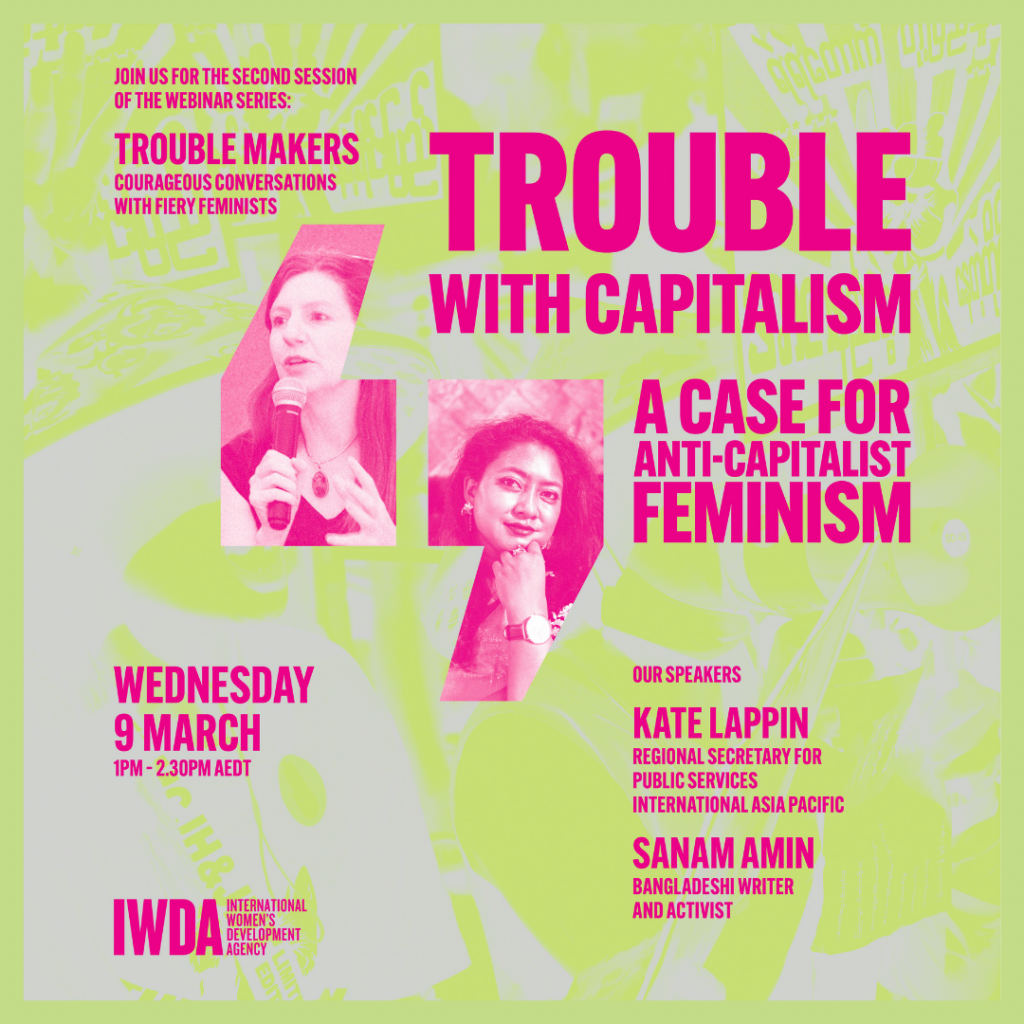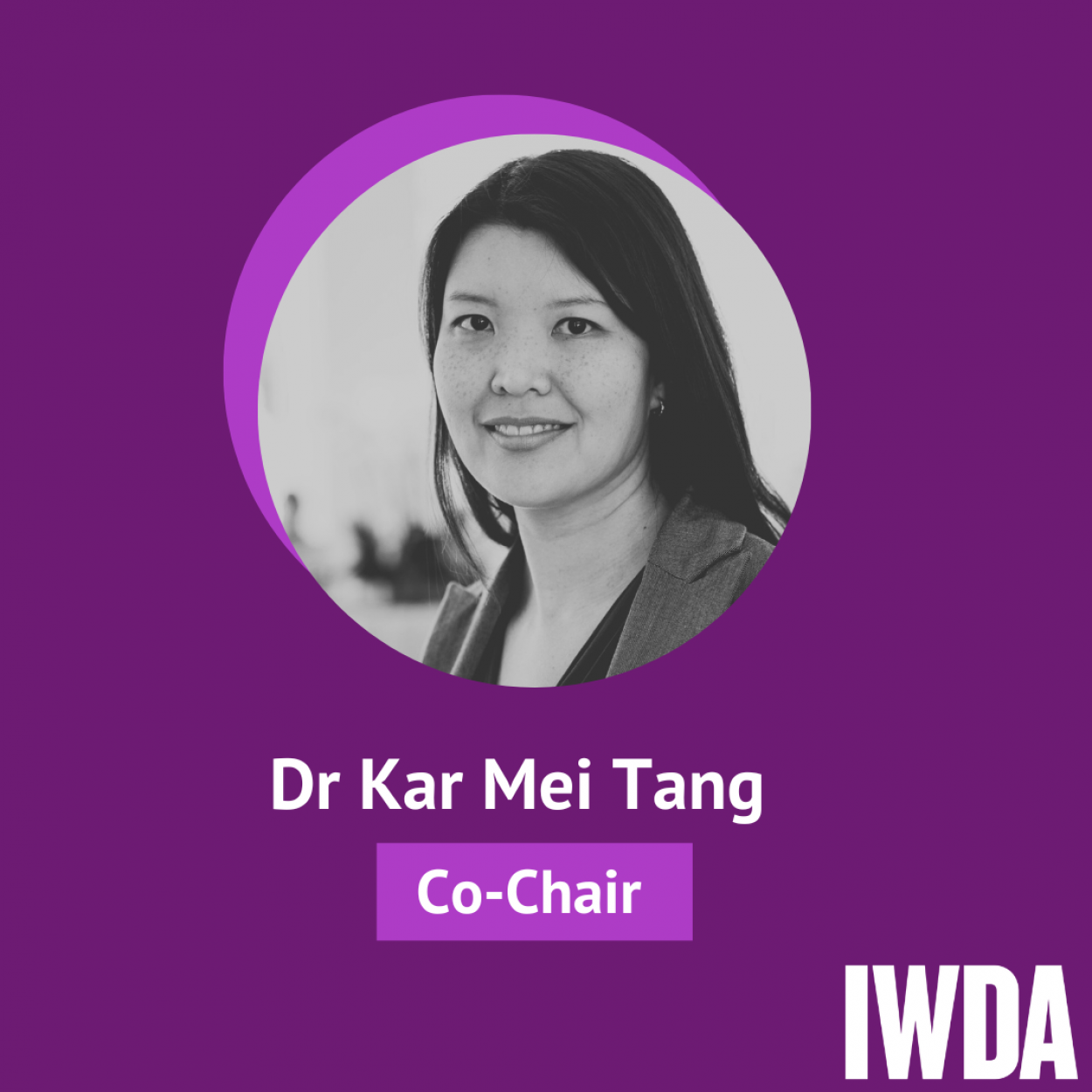
WATCH: The Trouble with Capitalism – A Case for Anti-Capitalist Feminism
What does it mean to fight for gender equality within a system designed to benefit the select few? Is it possible to uplift and empower all women within the confines of such a structure? And what would an alternative system look like?
For the second session of Troublemakers: Courageous Conversations with Fiery Feminists, we were joined by Bangladeshi writer, activist and researcher Sanam Amin and Asia Pacific Regional Secretary for Public Services International Kate Lappin to answer these very questions as they shared their thoughts on anti-capitalist feminism.
“There’s a conflation often that being anti-capitalist means being anti-markets or anti-business but that’s not true – markets have existed for much longer than capitalism. It’s actually about having a really free market.” – @cardboardsky #IWDATroublemakers
— IWDA (@iwda) March 9, 2022
In a frank conversation that candidly explored the shortfalls of capitalism and liberal feminism while offering inspiring alternatives to the current system, Kate and Sanam presented a compelling case for why feminism and capitalism are antithetical to each other and how core feminist principles can be used to create a more just system for all.
This included a conversation on the unjust roots and systems embedded within capitalism that revealed themselves in the midst of the COVID-19 pandemic – a time during which billionaires profited immensely while workers were left unhealthy, unemployed and unsupported.
“Capitalism isn’t the answer. Capitalism can’t stop a crisis. But it can profit off a crisis, and it absolutely has benefited from this one.” – @katelap of @PSIasiapacific on the clear big winners of this pandemic #IWDATroublemakers
— IWDA (@iwda) March 9, 2022
To Kate and Sanam, what lies at the core of tensions between feminism and capitalism are the different levels of importance placed on the collective versus the individual and the need to disrupt and redistribute power instead of centralising it within the hands of the few.
What’s the opposite of patriarchy? For @katelap, it’s solidarity and care.
“Too often people would say its matriarchy or having more women in particular areas of power. I think a way to disrupt that is saying the opposite of patriarchy is solidarity.” (1/2)
— IWDA (@iwda) March 9, 2022
“That’s part of deconstructing capitalism because capitalism depends on destroying solidarity.” (2/2) #IWDATroublemakers @katelap @PSIasiapacific
— IWDA (@iwda) March 9, 2022
Within their ideas for a potential feminist anti-capitalist future, the concepts of care and solidarity are crucial. To Kate, solidarity represents a natural opposite to a patriarchy that prioritises the individual. She explained that centering the concept of care holds the power to change the way our societies value labour and resources to create radically different economic systems.
Throughout their conversation, Sanam and Kate offered their views on how such a future could be achieved. This ranged from the importance of getting money out of politics by limiting big corporations’ ability to donate to political parties, the need for a universal basic income, as well as an unexpected detour to discuss the role libraries play within a community of care.
For @cardboardsky, a good way of creating change around wage issues is changing what politicians can earn:
“I wish minimum wage applied to everybody in government – especially in legislation. Maybe then they’d care a bit more about what they say everyone should survive on.”
— IWDA (@iwda) March 9, 2022
You can watch a recording of the first half of the session below to hear more of Sanam and Kate’s conversation including their shopping list items for creating an anti-capitalist future built around feminist principles.


